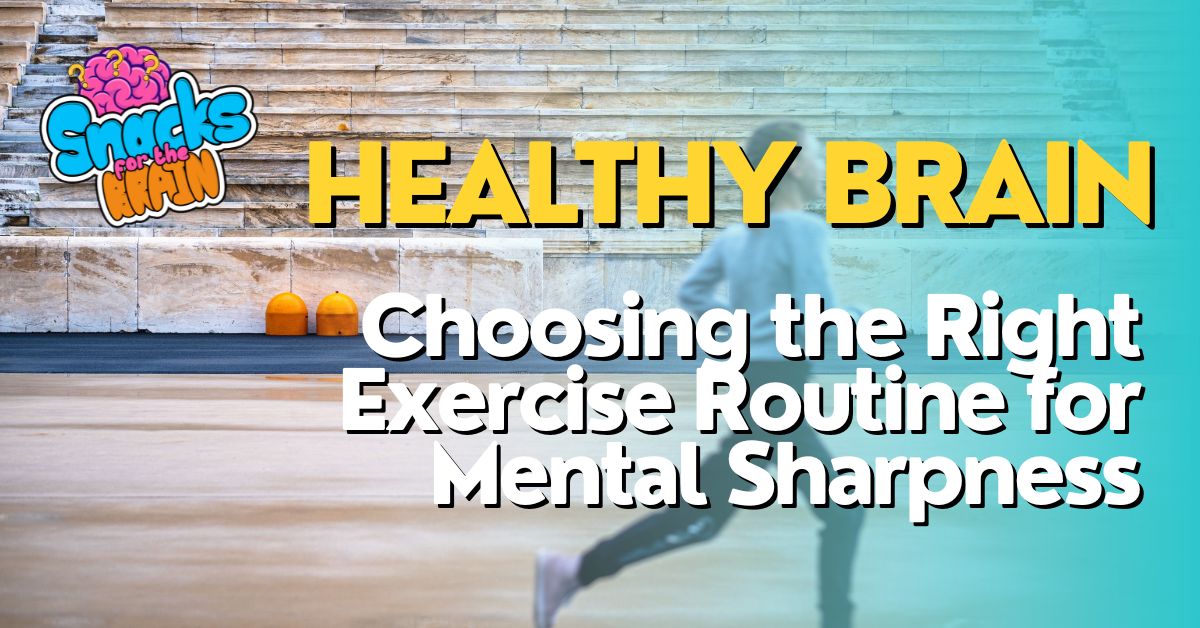Stress is a common experience that affects individuals in various aspects of their lives. Whether it’s due to work pressures, personal relationships, or other external factors, stress can have a significant impact on our cognitive abilities, particularly memory and learning. Understanding the relationship between stress, memory, and learning is crucial for improving cognitive performance and overall well-being.
Key Takeaways
- Stress can have a significant impact on memory and learning.
- Chronic stress can impair memory and learning abilities.
- Cortisol plays a crucial role in memory and learning under stressful conditions.
- Acute stress can enhance memory and learning in some cases.
- Stress can affect working memory, executive function, and long-term memory consolidation.
The Physiology of Stress and Its Impact on Memory and Learning
When we experience stress, our bodies release hormones such as cortisol and adrenaline. These hormones are part of the body’s natural response to stress and are designed to help us cope with challenging situations. However, prolonged or chronic stress can have detrimental effects on our brain function.
The amygdala and hippocampus are key brain regions involved in stress, memory, and learning. The amygdala is responsible for processing emotions and plays a crucial role in the body’s stress response. When we encounter a stressful situation, the amygdala sends signals to other parts of the brain, including the hippocampus.
The hippocampus is involved in memory formation and consolidation. It helps us encode new information and retrieve memories when needed. However, chronic stress can lead to structural changes in the hippocampus, impairing its ability to function properly. This can result in difficulties with memory formation and retrieval.
How Chronic Stress Affects Memory and Learning
Chronic stress can have long-lasting effects on our cognitive abilities. Research has shown that prolonged exposure to stress can lead to structural changes in the brain, particularly in the hippocampus. These changes include a decrease in the volume of the hippocampus and a reduction in the number of neurons.
These structural changes can impair memory formation and retrieval. Individuals experiencing chronic stress may have difficulty remembering new information or recalling previously learned material. This can have significant implications for academic performance or job-related tasks that require memory and learning.
Furthermore, chronic stress has been linked to cognitive decline and an increased risk of developing dementia later in life. The constant release of stress hormones can have a toxic effect on the brain, leading to the accumulation of harmful proteins and the development of neurodegenerative diseases.
The Role of Cortisol in Memory and Learning under Stressful Conditions
Cortisol is a hormone that is released in response to stress. It plays a crucial role in regulating various bodily functions, including metabolism, immune response, and memory formation. However, the effects of cortisol on memory and learning can be both positive and negative, depending on the timing and duration of stress.
In acute or short-term stressful situations, cortisol can enhance memory and learning. It helps us focus our attention on the task at hand and improves our ability to encode new information. This is known as the «fight or flight» response, where cortisol helps us respond quickly and effectively to a threatening situation.
However, when stress becomes chronic or prolonged, the constant release of cortisol can have detrimental effects on memory and learning. High levels of cortisol can impair the functioning of the hippocampus, leading to difficulties with memory formation and retrieval.
The Effect of Acute Stress on Memory and Learning
While chronic stress can have negative effects on memory and learning, acute or short-term stress can actually enhance these cognitive processes in certain situations. Research has shown that moderate levels of stress can improve our ability to focus and concentrate, leading to better memory formation.
For example, studies have found that students who experience moderate levels of stress before an exam tend to perform better than those who are not stressed at all. This is because the release of stress hormones helps activate the brain’s alertness systems, making us more attentive and focused.
However, it’s important to note that too much stress or extreme levels of anxiety can impair memory and learning. When stress becomes overwhelming, it can interfere with our ability to concentrate and process information effectively. This can lead to difficulties with memory formation and retrieval.
The Effect of Stress on Working Memory and Executive Function

Working memory and executive function are cognitive processes that are particularly vulnerable to the effects of stress. Working memory refers to our ability to hold and manipulate information in our minds over short periods of time. It is crucial for tasks such as problem-solving, decision-making, and learning new information.
Executive function, on the other hand, involves higher-order cognitive processes such as planning, organizing, and self-control. It helps us regulate our behavior and make decisions based on our goals and priorities.
Stress can impair both working memory and executive function, leading to decreased cognitive performance. When we are stressed, our attention becomes divided, making it difficult to focus on the task at hand. This can result in difficulties with information processing and retrieval.
The Effect of Stress on Long-Term Memory Consolidation
Long-term memory consolidation is the process by which memories are stored in the brain for long periods of time. It involves the strengthening of neural connections and the integration of new information with existing knowledge.
Stress can affect this process, leading to impaired memory consolidation. Research has shown that high levels of stress hormones, such as cortisol, can interfere with the formation of new memories and the retrieval of previously learned material.
Furthermore, stress can also disrupt the sleep cycle, which is crucial for memory consolidation. During sleep, the brain consolidates memories and transfers them from short-term storage to long-term storage. When we are stressed, our sleep quality may be compromised, leading to difficulties with memory consolidation.
The Impact of Stress on Learning and Memory in Children and Adolescents
Children and adolescents are particularly vulnerable to the effects of stress on memory and learning. Their brains are still developing, and they may not have fully developed coping mechanisms to deal with stress.
Chronic stress during childhood can have long-lasting effects on cognitive function. Research has shown that children who experience chronic stress, such as abuse or neglect, may have difficulties with memory and learning later in life. This can have significant implications for their academic performance and overall well-being.
It’s important for parents, educators, and policymakers to recognize the impact of stress on children’s cognitive development and implement strategies to mitigate its negative effects. Creating a supportive and nurturing environment, teaching stress management techniques, and providing access to mental health resources can help children and adolescents cope with stress and enhance their cognitive abilities.
Coping Strategies for Stress-Related Memory and Learning Impairments
There are several strategies that can help mitigate the negative effects of stress on memory and learning. These strategies focus on reducing stress levels and promoting overall well-being.
Mindfulness is one effective technique for managing stress. It involves paying attention to the present moment without judgment. Mindfulness practices, such as meditation or deep breathing exercises, can help calm the mind and reduce stress levels.
Exercise is another powerful tool for reducing stress and improving cognitive function. Physical activity releases endorphins, which are natural mood boosters. Regular exercise has been shown to enhance memory and learning by promoting the growth of new neurons in the hippocampus.
Cognitive-behavioral therapy (CBT) is a therapeutic approach that can help individuals identify and change negative thought patterns and behaviors that contribute to stress. CBT techniques can be effective in reducing stress levels and improving cognitive performance.
Implications for Education and Workplace Training: Strategies for Reducing Stress and Enhancing Memory and Learning
Understanding the relationship between stress, memory, and learning can inform strategies for improving education and workplace training. By implementing stress management techniques, exercise programs, and mindfulness training, educators and employers can create an environment that promotes optimal cognitive performance.
In educational settings, it’s important to recognize the impact of stress on students’ ability to learn. Implementing stress reduction techniques, such as mindfulness exercises or physical activity breaks, can help students manage their stress levels and enhance their memory and learning abilities.
In the workplace, employers can provide resources and support for employees to manage stress effectively. This can include offering stress management workshops, promoting work-life balance, and creating a supportive work environment.
By prioritizing stress reduction and promoting overall well-being, educational institutions and workplaces can create an environment that fosters optimal cognitive performance and enhances memory and learning abilities.
If you’re interested in improving your critical thinking skills and analytical reasoning, you might find this article on «Developing Critical Thinking: Techniques for Analytical Reasoning» helpful. It provides valuable insights and techniques to enhance your ability to think critically and make sound judgments. Check it out here.
FAQs
What is stress?
Stress is a physiological and psychological response to a perceived threat or challenge. It can be caused by various factors such as work, relationships, financial problems, and health issues.
How does stress affect memory?
Stress can have both positive and negative effects on memory. Acute stress can enhance memory consolidation, while chronic stress can impair memory retrieval and lead to memory loss.
What is the relationship between stress and learning?
Stress can affect learning by impairing attention, concentration, and cognitive flexibility. Chronic stress can also lead to a decrease in motivation and engagement in learning activities.
What are the long-term effects of chronic stress on memory and learning?
Chronic stress can lead to structural changes in the brain, such as a decrease in the size of the hippocampus, which is responsible for memory and learning. This can result in long-term memory impairment and difficulties in learning new information.
What are some strategies to manage stress and improve memory and learning?
Some strategies to manage stress and improve memory and learning include exercise, mindfulness meditation, getting enough sleep, eating a healthy diet, and seeking support from friends and family. It is also important to prioritize tasks and manage time effectively to reduce stress levels.





